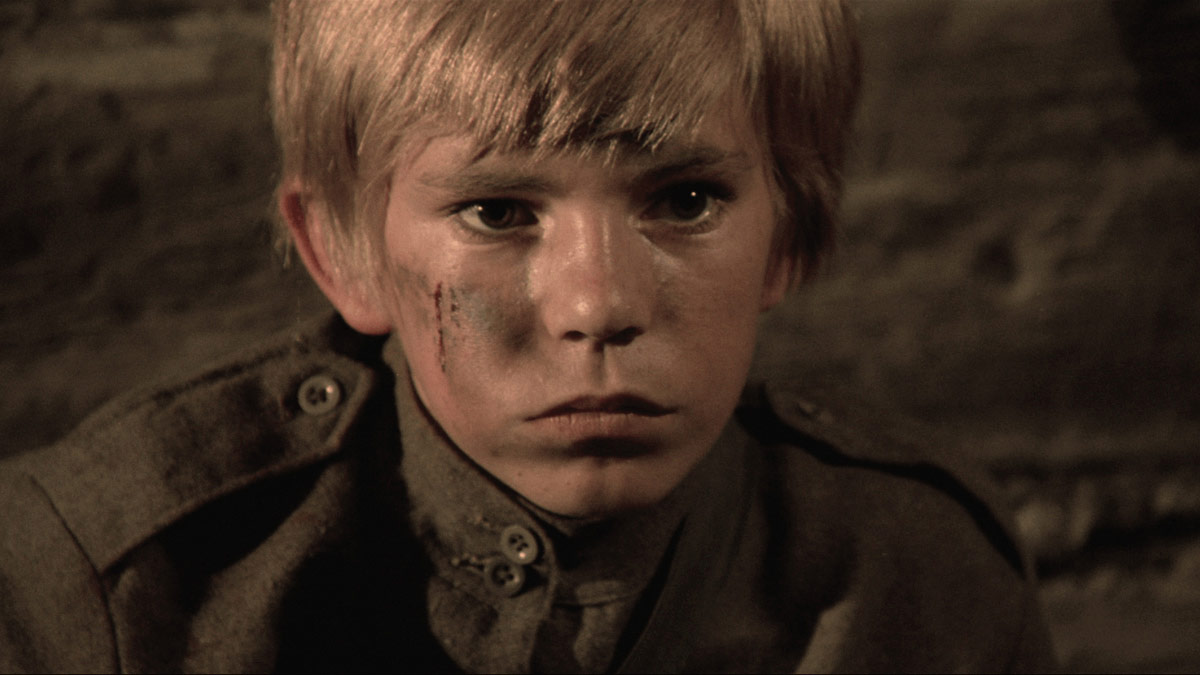
(c) 1977 Rapid Film GMBH - Terra Filmkunst Gmbh - STUDIOCANAL FILMS Ltd
What is the reason why Sam Peckinpah, the master of ``The Cross of Iron,'' threw himself into this work, rejecting the offers of ``Superman'' and ``King Kong''?
2017.09.05
“The Cross of Iron” Synopsis
During World War II, in 1943, when Germany was beginning to lose the battle, the Russian front was set. Set in a company in the German army, Peckinpah's masterpiece depicts the feud between a humane corporal and a cold-hearted company commander, and the murky human situation surrounding the award of the Iron Cross, considered the highest honor. The scene of people covered in mud and blood violently killing each other in the midst of flying shells stands out among all the war movies of all time. The “laughter” at the end leaves a strong impact.
Index
- A war movie that the master of violence took on only once in his life.
- Peckinpah's style of madness, which is different from typical war movies, is terrifying.
- ``My Village Was a Battlefield'' and ``Flame 628'' depicting the tragedy of the Eastern Front.
A war movie that the master of violence took on only once in his life.
Just as `` Apocalypse Now '' was for Coppola and ``Saving Saving Private Ryan '' was for Spielberg, great masters sometimes step into the realm of war movies at certain points in their lives. Unlike the former two, Peckinpah spent his impressionable youth at a military academy, and then joined the Marines at the outbreak of World War II. Although he did not take part in any combat action, he witnessed people being hit by bullets and dying up close in China, where he was posted, and it is said that this scene was etched in his mind as ``the longest few seconds.'' (I wonder if this experience led to the variety of "slow motion" that he later created).
After being discharged from the military, he discovered the charm of theater at a state university and went on to graduate school at the University of Southern California as a theater major, so you never know what life will bring. Furthermore, after releasing masterpieces such as `` The Wild Bunch '' and `` The Getaway ,'' he faced ``war'' again in the late 1970s at a time he never expected. The project that resulted was ``Cross of Iron of Iron,'' which was approached by a German producer.
Interestingly, around the same time, Peckinpah was also receiving scripts for `` King Kong '' and `` Superman, '' and was considering whether to accept them. Perhaps the studio had high hopes that Peckinpah, who had survived many turmoil, would be the person who could lead these unprecedented special effects projects. Even though his conclusion was "no" in the end, just imagining the "God of Violence" looking over these scripts gives me a very strange feeling.
So why did he choose `` The Cross of Iron '' over ``King Kong'' or `` Superman ''? Peckinpah only says that he wanted to ``break the mold of traditional war movies,'' but when you actually watch the film, his specific goals are clear.
There are two major differences from regular war movies. One is that the story is told from the perspective of Nazi Germany, who would normally be classified as the bad guys. Another point is that it depicts an old sergeant who defies his superiors and goes his own way. In other words, he makes this work special in two ways: ``refuses the easy dualism of good and evil'' and ``thoroughly highlights the existence of the individual, which is often denied in extreme situations.'' It is.
In order to reach these ultimate goals, Peckinpah read an unusually large amount of material in advance of his work, exposed himself to many extant footage, and deepened his understanding of the war in his own way. He then ordered a major rewrite of the original script, and the unfinished parts were discussed with the actors until the last minute, and there were many scenes where the direction was changed in a semi-improvised manner.
Peckinpah's style of madness, which is different from typical war movies, is terrifying.

